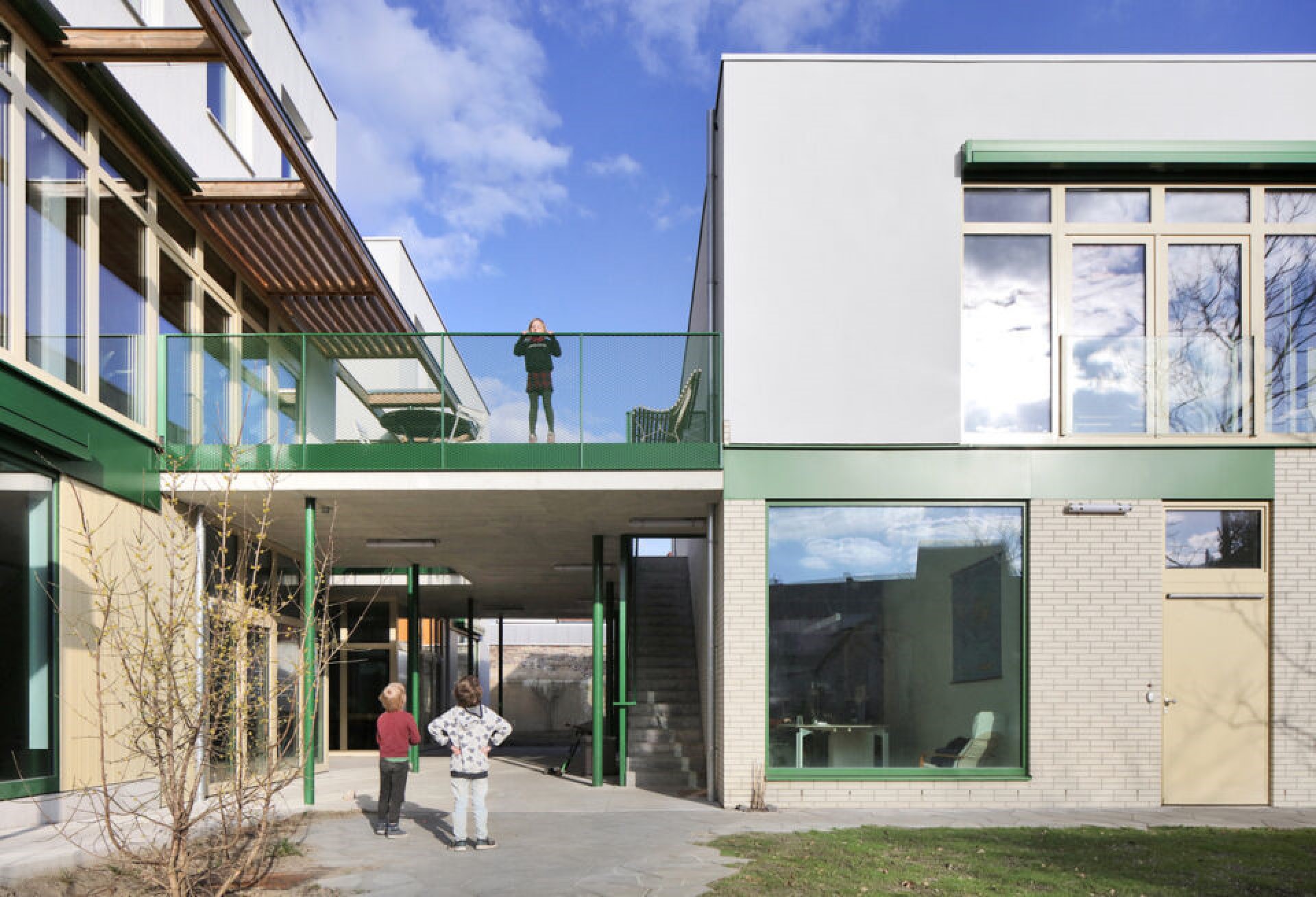Urban water communities
VITO-Vlakwa and DuCoop invite you to join the second Community of Practice (CoP) 'Urban water communities'. This interactive and learning network offers a valuable opportunity to actively exchange knowledge and practical experience on residential areas of the future in Flanders. The CoP is part of the Interreg North Sea Region project 'ANCHOR'.
Participate in the second CoP
A first CoP was about collective rainwater collection and treatment, now we want to work around greywater treatment and reuse. During this CoP, we will immerse ourselves in two cases deploying on greywater.
1. Cohousing project Jean in Sint-Amandsberg
Once a mushroom farm, now a cohousing project! The residents share 10 homes, 52 bikes, 5 cars, a coworking space, kitchen, workshop, playroom and laundry together. Moreover, the housing project also pays close attention to grey water. The used water from bath, shower and sink is purified and then used for toilets and washing machines. The site also integrated green roofs and wadis to retain and infiltrate water.

Cohousing project Jean in Ghent ©Filip Dujardin
2. Ibishotel in Gent-Dampoort
The Ibishotel will soon invest in grey water treatment to enable water reuse for low-grade applications in the hotel. In the CoP, we hear about the Ibishotel's motives for opting for water reuse.
Why be part of the CoP 'Urban Water Communities'?
- Actively contribute to solutions to shared challenges in developing urban water communities
- Learn from innovative case studies both within the ANCHOR project and beyond
- Network with other experts and stakeholders of residential areas of the future
- Get concrete tools to organise, finance and implement urban water projects
Programme
- 9:00 Departure on foot from the parking lot of HUBO Gent-Dampoort to cohousing project Jean
- 9:15 Explanation of water reuse cohousing Jean + questions and answers
- Bart Pannemans, inspirer of the project
- 10:15 Departure on foot to Ibishotel Gent-Dampoort + coffee break
- 10:45 Motivations for betting on greywater
- Motivations for hotel Ibis, Jo Lootens
- Interactive workshop on greywater systems
- 12:15 Networking lunch
What is the ANCHOR project about?
The CoP 'Urban water communities' is within the Interreg North Sea Region project 'ANCHOR'. Through a European demonstration network, ANCHOR explores how to roll out residential communities of the future. The Belgian demo is De Nieuwe Dokken site in Ghent.
The same challenges often crop up in such innovation projects; stumbling blocks that often greatly delay project realisations or even eventually cause them to plummet. Those issues can be divided into 4 groups:
- ORGANISATION - How do you organise the project? Who takes what responsibility? How do you involve stakeholders in the right way?
- FINANCING - How do you finance the project? When is a business case feasible?
- TECHNOLOGY - What technological barriers or uncertainties do we encounter?
- LEGISLATION - How do you reconcile innovative projects with current legislation?
The purpose of the CoP
The CoP network aims to address these recurring challenges by actively reflecting and sharing knowledge from practical cases. In this way, we can take steps forward to make it easier to roll out similar water projects. The ANCHOR project mainly takes a closer look at decentralised treatment in an urban context and recovery and reuse of valuable raw materials from domestic wastewater.
In the CoP network, we want to broaden that view further and also highlight projects around collective rainwater use or grey water.
